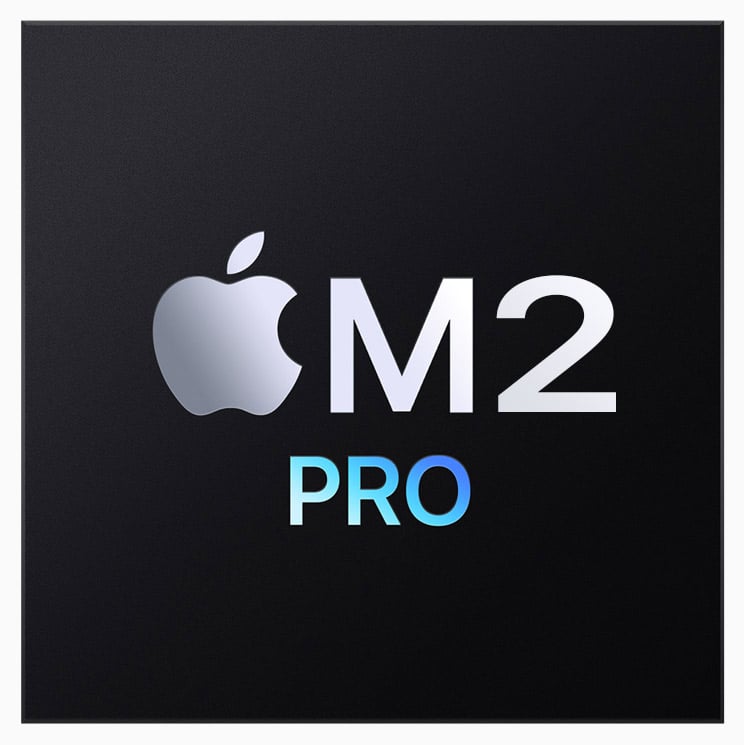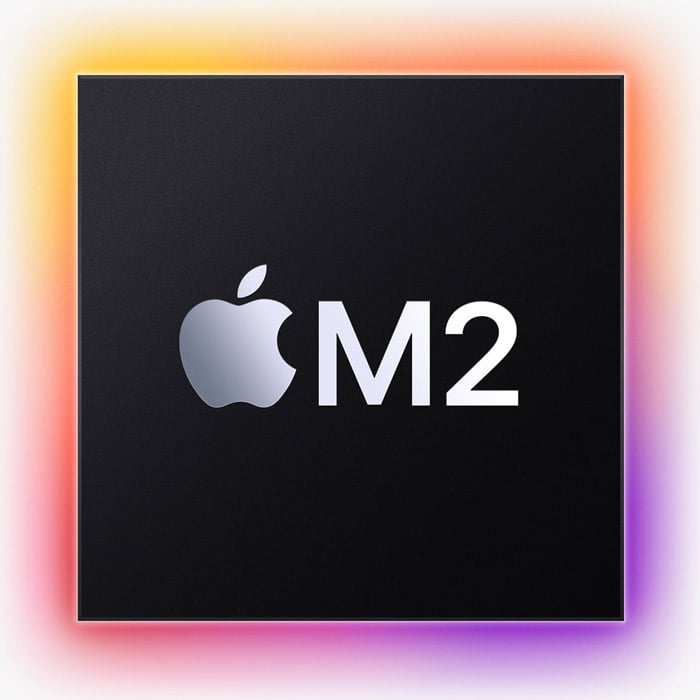
Apple M1 Ultra (64-GPU) Benchmark, Test and specs
Last updated:
The Apple M1 Ultra (64-GPU) has 20 cores with 20 threads and is based on the 1. gen of the Apple M series series. The processor was released in Q1/2022. The Apple M1 Ultra (64-GPU) scores 1,793 points in the Geekbench 5 single-core benchmark. In the Geekbench 5 multi-core benchmark, the result is 24,055 points.

| Name: | Apple M1 Ultra (64-GPU) |
|---|---|
| Family: | Apple M series (23) |
| CPU group: | Apple M1 (9) |
| Architecture: | M1 |
| Segment: | Mobile |
| Generation: | 1 |
| Predecessor: | -- |
| Successor: | Apple M2 Ultra (76-GPU) |
CPU Cores and Base Frequency
The Apple M1 Ultra (64-GPU) has 20 CPU cores and can calculate 20 threads in parallel. The clock frequency of the Apple M1 Ultra (64-GPU) is 0.60 GHz (3.20 GHz). The number of CPU cores greatly affects the speed of the processor and is an important performance indicator.
| CPU Cores / Threads: | 20 / 20 |
|---|---|
| Core architecture: | hybrid (big.LITTLE) |
| A-Core: | 16x Firestorm |
| B-Core: | 4x Icestorm |
| Hyperthreading / SMT: | No |
|---|---|
| Overclocking: | No |
| A-Core Frequency: | 0.60 GHz (3.20 GHz) |
| B-Core Frequency: | 0.60 GHz (2.06 GHz) |
Artificial Intelligence and Machine Learning
Processors with the support of artificial intelligence (AI) and machine learning (ML) can process many calculations, especially audio, image and video processing, much faster than classic processors. Algorithms for ML improve their performance the more data they have collected via software. ML tasks can be processed up to 10,000 times faster than with a classic processor.
| AI hardware: | Apple Neural Engine |
|---|---|
| AI specifications: | 32 Neural cores @ 22 TOPS |
Internal Graphics
The Apple M1 Ultra (64-GPU) has integrated graphics, called iGPU for short. Specifically, the Apple M1 Ultra (64-GPU) uses the Apple M1 Ultra (64 Core), which has 8192 texture shaders and 1024 execution units. The iGPU uses the system's main memory as graphics memory and sits on the processor's die.
| GPU name: | Apple M1 Ultra (64 Core) |
|---|---|
| GPU frequency: | 0.39 GHz |
| GPU (Turbo): | 1.30 GHz |
| Compute units: | 1024 |
| Shader: | 8192 |
| Hardware Raytracing: | No |
| Release date: | Q1/2022 |
| Max. displays: | 5 |
|---|---|
| Generation: | 1 |
| Direct X: | -- |
| Technology: | 5 nm |
| Max. GPU Memory: | 64 GB |
| Frame Generation: | No |
Hardware codec support
A photo or video codec that is accelerated in hardware can greatly accelerate the working speed of a processor and extend the battery life of notebooks or smartphones when playing videos.
| h265 / HEVC (8 bit): | Decode / Encode |
|---|---|
| h265 / HEVC (10 bit): | Decode / Encode |
| h264: | Decode / Encode |
| VP8: | Decode |
| VP9: | Decode / Encode |
| AV1: | No |
|---|---|
| AVC: | Decode |
| VC-1: | Decode |
| JPEG: | Decode / Encode |
Memory & PCIeThe processor can use up to 128 GB memory in 8 (Octa Channel) memory channels. The maximum memory bandwidth is 819.2 GB/s. The memory type as well as the amount of memory can greatly affect the speed of the system. |
|
| Memory type: | Memory bandwidth: |
|---|---|
| LPDDR5-6400 | 819.2 GB/s |
| Max. Memory: | 128 GB |
| Memory channels: | 8 (Octa Channel) |
| ECC: | No |
| PCIe: | 4.0 |
| PCIe Bandwidth: | -- |
Thermal ManagementThe thermal design power (TDP for short) of the processor is 60 W. The TDP specifies the necessary cooling solution that is required to cool the processor sufficiently. The TDP usually gives a rough idea of the actual power consumption of the CPU. |
|
|---|---|
| TDP (PL1 / PBP): | 60 W |
| TDP (PL2): | -- |
| TDP up: | 120 W |
| TDP down: | -- |
| Tjunction max.: | -- |
Technical details
The Apple M1 Ultra (64-GPU) is made in 5 nm. The smaller the manufacturing process of a CPU, the more modern and energy-efficient it is. Overall, the processor has 52.00 MB cache. A large cache can greatly speed up the processor's speed in some cases such as games.
| Technology: | 5 nm |
|---|---|
| Chip design: | Chiplet |
| Socket: | -- |
| L2-Cache: | 52.00 MB |
| L3-Cache: | -- |
| AES-NI: | Yes |
| Operating systems: | macOS |
| Virtualization: | Apple Virtualization Framework |
|---|---|
| Instruction set (ISA): | Armv8.5-A (64 bit) |
| ISA extensions: | Rosetta 2 x86-Emulation |
| Release date: | Q1/2022 |
| Release price: | -- |
| Part Number: | -- |
| Documents: | -- |
Rate this processor
Benchmark results

The benchmark results for the Apple M1 Ultra (64-GPU) have been carefully checked by us. We only publish benchmark results that have been created by us or that have been submitted by a visitor and then checked by a team member. All results are based on and fullfill our benchmark guidelines.
Screenshots:
Screenshots:
Cinebench 2024 (Single-Core)
The Cinebench 2024 benchmark is based on the Redshift rendering engine, which is also used in Maxon's 3D program Cinema 4D. The benchmark runs are each 10 minutes long to test whether the processor is limited by its heat generation.

|
AMD Ryzen 5 7600X
6C 12T @ 5.30 GHz |
||

|
Intel Core i9-13900HK
14C 20T @ 5.40 GHz |
||

|
Intel Core i9-13900HX
24C 32T @ 5.40 GHz |
||
|
|
Apple M1 Ultra (64-GPU)
20C 20T @ 3.20 GHz |
||

|
AMD Ryzen 9 7945HX
16C 32T @ 5.40 GHz |
||

|
Intel Core i7-13700HX
16C 24T @ 5.00 GHz |
||

|
Apple M1 Ultra (48-GPU)
20C 20T @ 3.20 GHz |
||
Cinebench 2024 (Multi-Core)
The Multi-Core test of the Cinebench 2024 benchmark uses all cpu cores to render using the Redshift rendering engine, which is also used in Maxons Cinema 4D. The benchmark run is 10 minutes long to test whether the processor is limited by its heat generation.

|
AMD Ryzen 9 7945HX
16C 32T @ 5.40 GHz |
||

|
AMD Ryzen 9 7900X
12C 24T @ 5.60 GHz |
||

|
AMD Ryzen 9 7900
12C 24T @ 5.40 GHz |
||
|
|
Apple M1 Ultra (64-GPU)
20C 20T @ 3.20 GHz |
||

|
Apple M1 Ultra (48-GPU)
20C 20T @ 3.20 GHz |
||

|
Intel Core i9-13900F
24C 32T @ 5.60 GHz |
||

|
Intel Core i9-13900
24C 32T @ 5.60 GHz |
||
Cinebench R23 (Single-Core)
Cinebench R23 is the successor of Cinebench R20 and is also based on the Cinema 4 Suite. Cinema 4 is a worldwide used software to create 3D forms. The single-core test only uses one CPU core, the amount of cores or hyperthreading ability doesn't count.

|
AMD Ryzen 7 PRO 5750G
8C 16T @ 4.60 GHz |
||

|
Intel Core i7-1185G7
4C 8T @ 4.80 GHz |
||

|
Intel Core i9-11900T
8C 16T @ 4.90 GHz |
||
|
|
Apple M1 Ultra (64-GPU)
20C 20T @ 3.20 GHz |
||

|
Apple M1 Ultra (48-GPU)
20C 20T @ 3.20 GHz |
||

|
Apple M1 Pro (10-CPU 14-GPU)
10C 10T @ 3.20 GHz |
||

|
Apple M1 Max (24-GPU)
10C 10T @ 3.20 GHz |
||
Cinebench R23 (Multi-Core)
Cinebench R23 is the successor of Cinebench R20 and is also based on the Cinema 4 Suite. Cinema 4 is a worldwide used software to create 3D forms. The multi-core test involves all CPU cores and taks a big advantage of hyperthreading.

|
Intel Core i5-14600K
14C 20T @ 5.30 GHz |
||

|
Intel Core i5-14600KF
14C 20T @ 5.30 GHz |
||

|
Intel Core i9-10980XE
18C 36T @ 4.30 GHz |
||
|
|
Apple M1 Ultra (64-GPU)
20C 20T @ 3.20 GHz |
||

|
Apple M1 Ultra (48-GPU)
20C 20T @ 3.20 GHz |
||

|
Intel Core i5-13600KF
14C 20T @ 5.10 GHz |
||

|
Intel Core i5-13600K
14C 20T @ 5.10 GHz |
||
Geekbench 5, 64bit (Single-Core)
Geekbench 5 is a cross plattform benchmark that heavily uses the systems memory. A fast memory will push the result a lot. The single-core test only uses one CPU core, the amount of cores or hyperthreading ability doesn't count.

|
Intel Core i5-13600T
14C 20T @ 4.80 GHz |
||

|
Intel Core i7-11700K
8C 16T @ 5.00 GHz |
||

|
Intel Core i7-11700KF
8C 16T @ 5.00 GHz |
||
|
|
Apple M1 Ultra (64-GPU)
20C 20T @ 3.20 GHz |
||

|
Apple M1 Ultra (48-GPU)
20C 20T @ 3.20 GHz |
||

|
Intel Core i7-12800HX
16C 24T @ 4.80 GHz |
||

|
Intel Core i7-12850HX
16C 24T @ 4.80 GHz |
||
Geekbench 5, 64bit (Multi-Core)
Geekbench 5 is a cross plattform benchmark that heavily uses the systems memory. A fast memory will push the result a lot. The multi-core test involves all CPU cores and taks a big advantage of hyperthreading.

|
AMD Ryzen 9 7950X
16C 32T @ 5.20 GHz |
||

|
Intel Core i7-14700K
20C 28T @ 5.30 GHz |
||

|
Intel Core i7-14700KF
20C 28T @ 5.30 GHz |
||
|
|
Apple M1 Ultra (64-GPU)
20C 20T @ 3.20 GHz |
||

|
Apple M1 Ultra (48-GPU)
20C 20T @ 3.20 GHz |
||

|
Intel Core i9-13900KF
24C 32T @ 5.50 GHz |
||

|
Intel Core i9-13900K
24C 32T @ 5.50 GHz |
||
Geekbench 6 (Single-Core)
Geekbench 6 is a benchmark for modern computers, notebooks and smartphones. What is new is an optimized utilization of newer CPU architectures, e.g. based on the big.LITTLE concept and combining CPU cores of different sizes. The single-core benchmark only evaluates the performance of the fastest CPU core, the number of CPU cores in a processor is irrelevant here.

|
AMD Ryzen 5 7540U
6C 12T @ 4.90 GHz |
||

|
AMD Ryzen 5 7545U
6C 12T @ 4.90 GHz |
||

|
AMD Ryzen 5 8540U
6C 12T @ 4.90 GHz |
||
|
|
Apple M1 Ultra (64-GPU)
20C 20T @ 3.20 GHz |
||

|
Apple M1 Ultra (48-GPU)
20C 20T @ 3.20 GHz |
||

|
Apple M1 Pro (10-CPU 14-GPU)
10C 10T @ 3.20 GHz |
||

|
Apple M1 Max (24-GPU)
10C 10T @ 3.20 GHz |
||
Geekbench 6 (Multi-Core)
Geekbench 6 is a benchmark for modern computers, notebooks and smartphones. What is new is an optimized utilization of newer CPU architectures, e.g. based on the big.LITTLE concept and combining CPU cores of different sizes. The multi-core benchmark evaluates the performance of all of the processor's CPU cores. Virtual thread improvements such as AMD SMT or Intel's Hyper-Threading have a positive impact on the benchmark result.

|
AMD Ryzen Threadripper 7970X
32C 64T @ 4.00 GHz |
||

|
AMD Ryzen Threadripper PRO 7985WX
64C 128T @ 3.20 GHz |
||

|
AMD Ryzen Threadripper PRO 7995WX
96C 192T @ 2.50 GHz |
||
|
|
Apple M1 Ultra (64-GPU)
20C 20T @ 3.20 GHz |
||

|
Apple M1 Ultra (48-GPU)
20C 20T @ 3.20 GHz |
||

|
AMD EPYC 9554
64C 128T @ 3.75 GHz |
||

|
Intel Core i9-14900KS
24C 32T @ 5.90 GHz |
||
iGPU - FP32 Performance (Single-precision GFLOPS)
The theoretical computing performance of the internal graphics unit of the processor with simple accuracy (32 bit) in GFLOPS. GFLOPS indicates how many billion floating point operations the iGPU can perform per second.

|
Apple M2 Ultra (76-GPU)
Apple M2 Ultra (76 Core) @ 1.40 GHz |
||

|
Apple M2 Ultra (60-GPU)
Apple M2 Ultra (60 Core) @ 1.40 GHz |
||
|
|
Apple M1 Ultra (64-GPU)
Apple M1 Ultra (64 Core) @ 1.30 GHz |
||

|
Apple M1 Ultra (48-GPU)
Apple M1 Ultra (48 Core) @ 1.30 GHz |
||

|
Apple M3 Max (16-CPU 40-GPU)
Apple M3 Max (40 Core) @ 1.40 GHz |
||

|
Apple M2 Max (38-GPU)
Apple M2 Max (38 Core) @ 1.40 GHz |
||

|
Microsoft XBox Series X
AMD Custom Radeon Graphics (XBox Series X) @ 1.83 GHz |
||
Blender 3.1 Benchmark
In the Blender Benchmark 3.1, the scenes "monster", "junkshop" and "classroom" are rendered and the time required by the system is measured. In our benchmark we test the CPU and not the graphics card. Blender 3.1 was presented as a standalone version in March 2022.

|
AMD Ryzen Threadripper 2970WX
24C 48T @ 3.00 GHz |
||

|
Intel Core i9-12900KS
16C 24T @ 5.20 GHz |
||

|
AMD Ryzen 9 3950X
16C 32T @ 4.00 GHz |
||
|
|
Apple M1 Ultra (64-GPU)
20C 20T @ 3.20 GHz |
||

|
Apple M1 Ultra (48-GPU)
20C 20T @ 3.20 GHz |
||

|
Intel Core i9-12900KF
16C 24T @ 5.00 GHz |
||

|
Intel Core i9-12900K
16C 24T @ 5.00 GHz |
||
Estimated results for PassMark CPU Mark
Some of the CPUs listed below have been benchmarked by CPU-monkey. However the majority of CPUs have not been tested and the results have been estimated by a CPU-monkey’s secret proprietary formula. As such they do not accurately reflect the actual Passmark CPU mark values and are not endorsed by PassMark Software Pty Ltd.

|
Intel Xeon Gold 6354
18C 36T @ 3.40 GHz |
||

|
AMD EPYC 7352
24C 48T @ 2.70 GHz |
||

|
Intel Core i9-12900KF
16C 24T @ 5.00 GHz |
||
|
|
Apple M1 Ultra (64-GPU)
20C 20T @ 3.20 GHz |
||

|
Apple M1 Ultra (48-GPU)
20C 20T @ 3.20 GHz |
||

|
AMD EPYC 7F52
16C 32T @ 3.70 GHz |
||

|
Intel Core i9-12900K
16C 24T @ 5.00 GHz |
||
Performance for Artificial Intelligence (AI) and Machine Learning (ML)
Processors with the support of artificial intelligence (AI) and machine learning (ML) can process many calculations, especially audio, image and video processing, much faster than classic processors. The performance is given in the number (trillions) of arithmetic operations per second (TOPS).

|
Qualcomm Snapdragon 888
8C 8T @ 2.84 GHz |
||

|
Qualcomm Snapdragon 8 Gen 1
8C 8T @ 3.00 GHz |
||

|
Qualcomm Snapdragon 8 Gen 2
8C 8T @ 3.36 GHz |
||
|
|
Apple M1 Ultra (64-GPU)
20C 20T @ 0.60 GHz |
||

|
Apple M1 Ultra (48-GPU)
20C 20T @ 0.60 GHz |
||

|
Apple A16 Bionic
6C 6T @ 3.46 GHz |
||

|
AMD Ryzen 7 PRO 8840U
8C 16T @ 3.30 GHz |
||
Benchmarks

Cinebench 2024 (SC)
272 entries
272 entries

Cinebench 2024 (MC)
271 entries
271 entries

Cinebench R23 (SC)
586 entries
586 entries

Cinebench R23 (MC)
565 entries
565 entries

Geekbench 5 (SC)
2,488 entries
2,488 entries

Geekbench 5 (MC)
2,461 entries
2,461 entries

Geekbench 6 (SC)
1,755 entries
1,755 entries

Geekbench 6 (MC)
1,703 entries
1,703 entries

FP32 SP (iGPU)
2,042 entries
2,042 entries

Blender 3.1 Benchmark
212 entries
212 entries

PassMark CPU-Mark
2,392 entries
2,392 entries

AI / ML Performance
119 entries
119 entries
News and articles for the Apple M1 Ultra (64-GPU)

Apple M2 Pro with more CPU cores and production in 3 nm ?
Posted by Stefan on 2022-06-28
After Apple surprisingly presented the normal Apple M2 processor as the first successor to the Apple M1 already in June 2022, the Apple M2 Pro and the Apple M2 Max may follow in autumn. The difference in performance compared to the basic version could be even greater this time and range from 25 to 40 percent.
In this article we describe how Apple could realize this and why the price should also go up.
In this article we describe how Apple could realize this and why the price should also go up.

AMD Ryzen 9 7950X - Cinebench R23 Benchmark projection
Posted by Stefan on 2022-06-10
We give you a preview of AMD's new Zen 4 desktop processors and calculate the performance of the AMD Ryzen 9 7950X top model for the new AM5 socket. The performance data and other technical details come directly from the press kit that AMD released as part of its Financial Analyst Day on June 9, 2022.
Up to 15 percent more single-core performance and 35 percent more multi-core performance of the 16-core model are realistic !
Up to 15 percent more single-core performance and 35 percent more multi-core performance of the 16-core model are realistic !

Apple M2 vs Apple M1 - What are the differences?
Posted by Stefan on 2022-06-09
During WWDC 2022 on June 6th, 2022 Apple surprisingly presented its new Apple M2 processor. This will initially be installed in a completely revised Apple MacBook Air with 13.6 inches, a even thinner form factor and new colors. Apple also updated the already known (old) Apple MacBook Pro 13.3 with touch bar.
Many leakers had counted on Apple not presenting its new second-generation M processor until the fall. But things turned out differently. And there is very likely a reason for that: the improvements in the Apple M2 are limited compared to the predecessor.
Many leakers had counted on Apple not presenting its new second-generation M processor until the fall. But things turned out differently. And there is very likely a reason for that: the improvements in the Apple M2 are limited compared to the predecessor.
Description of the processor
In the Apple M1 Ultra, Apple relies on a total of 20 CPU cores. The clock frequency of 3.2 GHz (performance cores) and 2.06 GHz (efficiency cores) is on the same level as that of the normal Apple M1 or the larger expansion stages Apple M1 Pro and Apple M1 Max.The Apple M1 Ultra with 64 GPU cores is currently the largest and fastest Apple processor. It combines two individual Apple M1 Max processor chips via an interface with a bandwidth of 2.5 TB/s. AMD also uses a similar technology in its current AMD Ryzen processors.
In addition to the CPU cores, the two graphics units are also synchronized via the interface of the two processors in the Apple M1 Ultra. According to Apple, the interface itself consists of 1000 separate lines, which make such a large bandwidth possible in the first place.
The memory bandwidth of the LPDDR5-6400 memory is almost 820 GB/s, which is approx. 10x as fast as current desktop processors from AMD and Intel. Since Apple does not use an external graphics unit in its new products, the memory has to be fast enough not to slow down the GPU units of the Apple M1 Ultra. The processor and graphics unit dynamically share the memory of up to 128 GB.
The Apple M1 Ultra with 64 GPU cores achieves an FP32 processing performance (single precision) of 21.2 TFLOP/s. The strongest Apple iGPU is about 5x as fast as the fastest iGPU of the competition AMD Ryzen 9 6980HX. When it comes to graphics performance, the Apple M1 Ultra does not need to fear comparison with external graphics cards from AMD or NVIDIA. The FP32 performance is roughly on par with an AMD Radeon RX 6800XT or an NVIDIA RTX 3070.
Thanks to the latest 5 nm production and the energy-efficient ARM chip design, the energy consumption of the Apple M1 Ultra is also impressive and is slightly above the latest AMD Ryzen 6000 mobile processors.
Popular comparisons
back to index





